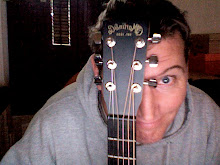So much for a four-way tie.
In the end, the outcome of the Iowa caucuses came down to one word: electability.
Despite Dick Gephardt’s labour support, and Howard Dean’s unprecedented grassroots organisation; what Democratic voters decided tonight was that they wanted someone who’s going to be capable of realistically defeating George Bush in November.
What they maybe couldn’t decide was between the two Johns – senators Kerry and Edwards.
But it was those two candidates who put their surge in support in the last few days to the best use tonight, and it is those two who will dominate the headlines tomorrow.
Only a week ago, Dean appeared to have an unassailable lead; his activists and supporters were thronging even the smallest town across the state, extending their base with many, many people who had not previously participated in a caucus or even been politically active.
Yet Dean’s inability to translate that support, and the networks his campaign had so skilfully established using the internet, will doubtless be spun tomorrow with the excuse that Iowa was somehow not “sophisticated” enough for the former Vermont governor’s message.
And Dean was, no doubt, hurt by the fact that he was probably not many people’s second-choice.
It remains, though, that he had the anti-war position snatched from beneath him by the credible, reasoned approach of John Kerry. And when that was combined with Kerry’s broadly-perceived electability, Dean’s angry persona appeared to be even more marginalised.
Dean's endorsements, even by Tom Harkin, Bill Bradley and Al Gore, counted for little.
Kerry, following a needed re-organisation of his campaign team, used his position on the war – and his genuine status as a Vietnam war hero – to great effect in TV ads and public appearances. In the words of Michael Barone, he was able to turn his credentials into a narrative.
He was undoubtedly helped by the appearances of of Jim Rassmann, a fellow Vietnam veteran, whose life Kerry had saved during combat.
For John Edwards, the strong second-place finish means he moves on to New Hampshire with renewed momentum. However, the caucus system – where Edwards was many people’s second-choice – may turn out to have served him better than will the straight primary of the Granite State.
Dick Gephardt’s long, distinguished political career effectively came to an end this evening with his disappointing showing. In some caucuses, he even fell below the 15 per cent viability level; and with many of his supporters’ second-choices being either Kerry or Edwards, it merely compounded his discomfort.
Kerry’s performance tonight may have the effect of galvanising the Bush campaign into kicking off its activity sooner, rather than the later they may have assumed they could were they expecting to face Dean in the general election.
But one of Kerry’s anti-Dean slogans from Iowa: “Don’t Send A Message, Send A President”, may well prove to be the sort of rallying cry that resonates with Democrats nationally as his cult of electability takes hold.
Steve
In the end, the outcome of the Iowa caucuses came down to one word: electability.
Despite Dick Gephardt’s labour support, and Howard Dean’s unprecedented grassroots organisation; what Democratic voters decided tonight was that they wanted someone who’s going to be capable of realistically defeating George Bush in November.
What they maybe couldn’t decide was between the two Johns – senators Kerry and Edwards.
But it was those two candidates who put their surge in support in the last few days to the best use tonight, and it is those two who will dominate the headlines tomorrow.
Only a week ago, Dean appeared to have an unassailable lead; his activists and supporters were thronging even the smallest town across the state, extending their base with many, many people who had not previously participated in a caucus or even been politically active.
Yet Dean’s inability to translate that support, and the networks his campaign had so skilfully established using the internet, will doubtless be spun tomorrow with the excuse that Iowa was somehow not “sophisticated” enough for the former Vermont governor’s message.
And Dean was, no doubt, hurt by the fact that he was probably not many people’s second-choice.
It remains, though, that he had the anti-war position snatched from beneath him by the credible, reasoned approach of John Kerry. And when that was combined with Kerry’s broadly-perceived electability, Dean’s angry persona appeared to be even more marginalised.
Dean's endorsements, even by Tom Harkin, Bill Bradley and Al Gore, counted for little.
Kerry, following a needed re-organisation of his campaign team, used his position on the war – and his genuine status as a Vietnam war hero – to great effect in TV ads and public appearances. In the words of Michael Barone, he was able to turn his credentials into a narrative.
He was undoubtedly helped by the appearances of of Jim Rassmann, a fellow Vietnam veteran, whose life Kerry had saved during combat.
For John Edwards, the strong second-place finish means he moves on to New Hampshire with renewed momentum. However, the caucus system – where Edwards was many people’s second-choice – may turn out to have served him better than will the straight primary of the Granite State.
Dick Gephardt’s long, distinguished political career effectively came to an end this evening with his disappointing showing. In some caucuses, he even fell below the 15 per cent viability level; and with many of his supporters’ second-choices being either Kerry or Edwards, it merely compounded his discomfort.
Kerry’s performance tonight may have the effect of galvanising the Bush campaign into kicking off its activity sooner, rather than the later they may have assumed they could were they expecting to face Dean in the general election.
But one of Kerry’s anti-Dean slogans from Iowa: “Don’t Send A Message, Send A President”, may well prove to be the sort of rallying cry that resonates with Democrats nationally as his cult of electability takes hold.
Steve


0 Comments:
Post a Comment
<< Home